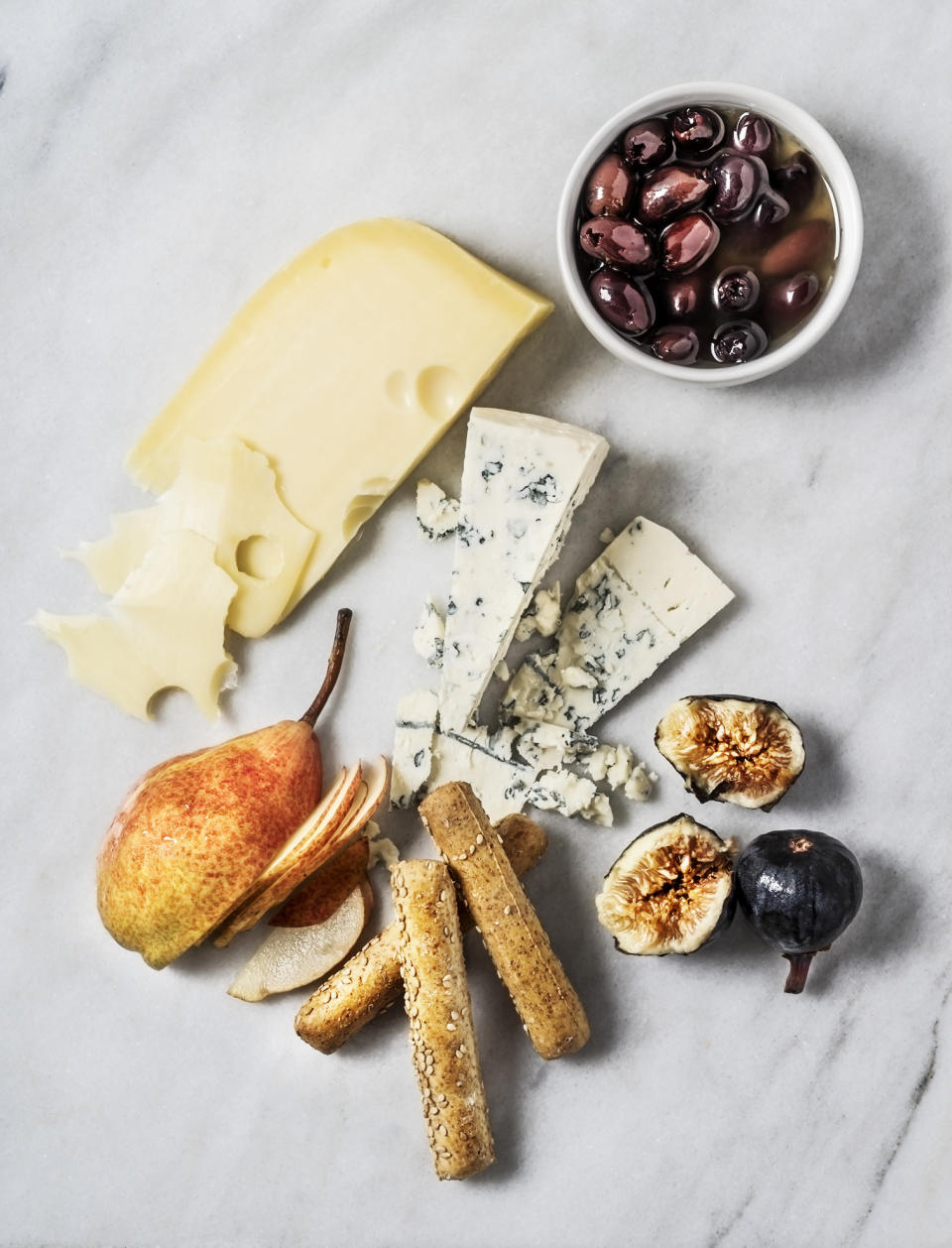How I keep my skin clear even though I'm in love with cheese
I love cheese: I could eat baguette slices and brie for multiple days in a row and never tire of it. My go-to late night snack after a night out is slices of Monterey Jack on whole wheat crackers. I unabashedly nod like a bobblehead before a waiter can ask me if I want parmesan on my pasta (“Tell me when…”). But while my cheese cravings are happily indulged, my skin sometimes seems to pay the price of dairy consumption.
I’ve read many articles and had other beauty editor friends tell me that one of the keys to clear skin is going dairy-free. Chalk it up to my stubborn nature (self-proclaimed Aquarius over here), but I refuse to live in a world where I have to give up one of my favorite foods to fight off acne. There had to be some sort of compromise to ensure my face remained blemish-free despite daily adventures in cheese eating. I spoke with dermatologist Heidi Waldorf, M.D., about the relationship between diary to acne. She told me to remember these three things (and more importantly assured me that I could continue eating cheese for as long as I want). Scroll down to see what she had to say.
Diet is the least likely cause for acne.
Good news: what you eat isn’t necessarily a direct trigger for causing acne. “Although I have colleagues who put every acne patient on a low inflammatory diet, in my experience diet is the least likely cause or cure,” Waldorf said. “For most of my patients it is difficult to separate the effect of stress and diet. Hormonal effects can be measured and treated directly.”
She explains that the peptides in milk promote a type of insulin that is hypothesized to stimulate acne and oil glands. Whether those peptides trigger acne or not are also genetic, meaning not something you can control (but definitely something you can proactively respond to with proper treatment and care).

Acne caused by diet is treated the same way as other forms of acne.
Luckily, you don’t need some special product to treat this specific type of acne. She recommends looking for those known hero acne-fighting ingredients to treat any and all breakouts: retinoids, benzoyl peroxide, salicylic acid, prescription antibiotics, anti-inflammatory medications, and hormonal therapy. Her go-to products are over-the-counter products like Skinbetter Science AlphaRet Overnight Cream or AlphaRet Peel Pads. I personally live by Differin Gel to keep my skin clear and smooth, and for big pimples that pop out of nowhere, I use Votary Blemish Rescue Oil. The appearance and redness of that pimple reduces in size dramatically overnight, so this is a miracle worker.
You do not have to give up dairy completely.
While a study in 2018 shows that those who frequently eat cheese and dairy have higher odds at trigger acne than those who don’t, Waldorf says that I shouldn’t have to give up cheese or find a substitute (nut cheese is good, but it’s no permanent solution for true cheese connoisseurs). “The susceptibility to acne and to dairy having a role in acne is genetic,” she told me. “In my experience, the majority of patients’ acne could be improved without giving up dairy and the most severe forms of acne require medical treatment regardless of dietary changes.”
But if you’re still finding a correlation between dairy and acne when you’ve tried everything else, she says yogurt and cheese provide less risk to those pesky blemishes than milk and ice cream. And that is something I can totally live with.


